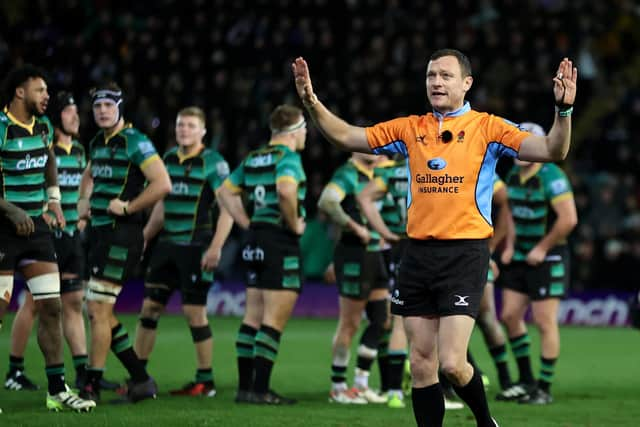Scotland captaincy: It’s man not number on jersey that matters and Finn will rule with a smile - Allan Massie
There has always been argument about the best position from which to captain an international side. The truth is that there is no best position. Teams have been successfully led from them all.
Both Scotland’s Grand Slam winning captains were loose-head props: Jim Aitken and David Sole. Martin Johnson was a lock who captained both England – to a World Cup win – and the Lions to a series win in South Africa; Ian McGeechan chose him as Lions captain because of his impressive stature and manner. The same could be said of Gavin Hastings as Scotland’s captain. France. however. have often favoured a scrum-half as captain, a Napoleonic “petit caporal”. The truth is it’s the man, not the number on the jersey, that matters.
Advertisement
Hide AdAdvertisement
Hide AdThere’s not such an easy answer to the question “what does a captain actually do?” – except to say it’s what he is that counts. In this connection great players don’t always make good captains. They may find the responsibility of leadership a distraction. Viewing from a distance – like everyone not on the field – I suspect this was the case with Jamie Ritchie. His own form seemed to suffer. Before becoming captain he was an outstanding flanker, a master at the breakdown. He was only a good one as captain. Other great players have had the same experience, not only in rugby. Think of Ian Botham, the greatest all-rounder in the long history of English cricket ,but an unsuccessful captain, the responsibility affecting his form.


Gregor Townsend has opted to replace Ritchie with co-captains this spring, Finn Russell and Rory Darge, Co-captaincy has become quite fashionable. At least it should mean that one of the two may be on the field for the whole 80 minutes – I’ve never been happy to see a captain taken off. I guess that Russell will be the strategist and tactician, Darge the leader by example. Though the ideas of a co-captaincy is fairly new, there has usually been a designated “leader of the forwards”. The new and very young Welsh captain Daffyd Jenkins says he will lead by example, and leave tactics to the half-backs. It has always been the case for a forward as captain that he is saying “come on” rather than “go on”.
Communication with the referee has become a more important part of the captain’s job than it used to be. It requires tact. Ritchie, like England’s Owen Farrell and Ireland’s Johnny Sexton, sometimes seemed too challenging, too confrontational in his approach to the referee, more than once being marched back ten yards for dissent. I imagine Finn will ask for clarification with a smile on his face.
Referees have always had a hard job. It has become all the more difficult in these days of social media when decisions are questioned and referees abused. It’s no wonder that some are very ready to turn to the TMO for advice or confirmation – too ready, I would say. The law still says that the referee is the sole judge of play. Except when he has spotted foul play – often some way off the ball – the TMO should wait to be asked before offering an opinion. The man in front of a TV is there to assist the man on the field, not otherwise to interfere. Long confabulations spoil the game.
Indeed, these long debates often spoil a match. They break up its rhythm and it’s not only because of the raft of replacements coming on in the second half that matches no longer open up in the last quarter as they used to do; it’s also because these often very long discussions between the referee and the TMO give players frequent rest periods. It would be wrong to say the TMO is a blight on the game. Nevertheless he is too often obtrusive, too often seems eager to impose his judgement on the referee.


I watched a fine match last week between Toulouse and Bath but it was less enjoyable than it should have been because of the too frequent and too prolonged discussions between the man on the field and the man in front of the TV . This was frustrating for the spectator and, I guess, often irritating for the players, The referee is the sole judge of play, so let him trust his own judgement and judge.